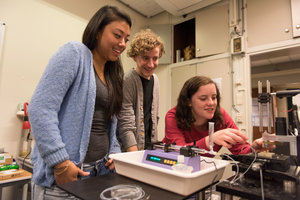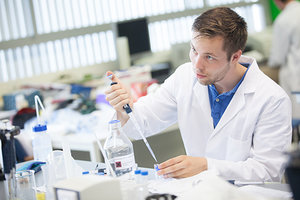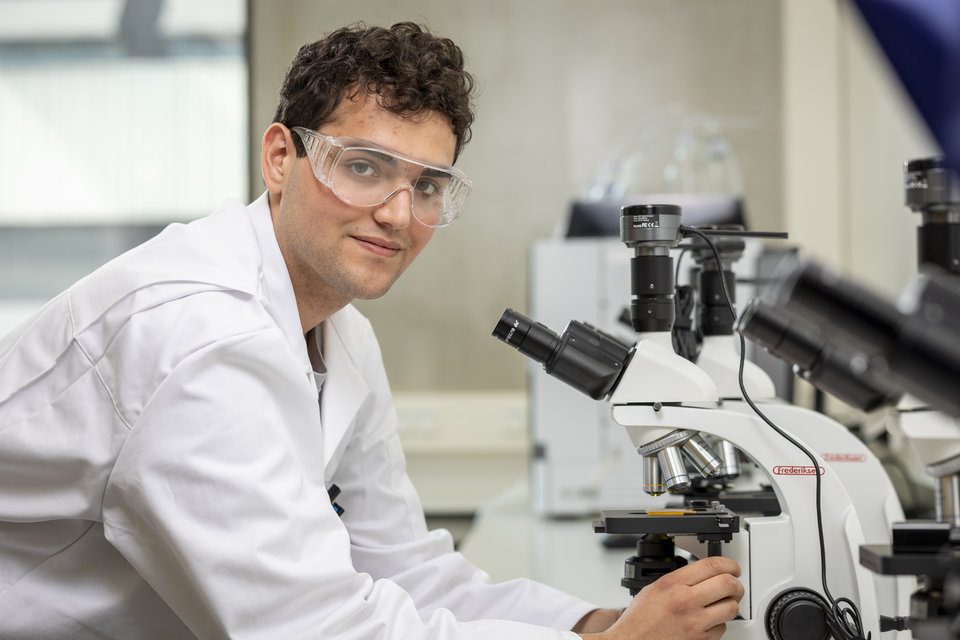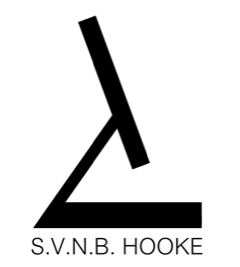About the programme
Nanobiology uses the language of Mathematics within the context of Physics to understand the complexity of Biology. Unique to this programme, students gain a strong background in fundamental Mathematics, Physics and modern Biology from the very beginning.
The aim is for students to foster cross-disciplinary thinking as standard and bridge scientific fields with ease. In addition to the integrated theoretical modules, students are introduced to advanced practical skills in laboratory experimentation, information technology, programming and research methods.
Field of study
Why Nanobiology? Technological advances have only recently enabled us to study Biology at nanolevel. You will be studying at the frontier of an exciting new research field that combines Physics and Biology. You will benefit from the combined expertise of two world class institutions in Delft and Rotterdam and you will have the opportunity to work in state-of-the-art research facilities in a stimulating international environment.
-
Nanobiology is a rapidly-developing international area of research driven by technical developments and interdisciplinary cooperation. We can expect to see continued advances in methods which offer new ways of studying and understanding the fundamental mechanisms that define health and disease at the molecular and cellular levels.

-
The Nanobiology Bachelor’s degree programme teaches the fundamental knowledge and skills needed to describe and study the complexity of living systems. The programme’s emphasis is on learning to apply quantitative analysis based on the principles of physics. These skills and knowledge will bring about changes which, in the near future, will impact on our society not only in terms of medicine, but also energy, food and beyond. Nanobiology will enable you to contribute to improving society by addressing current and future challenges.

Curriculum
During the three-year full-time BSc Nanobiology, you will step into the world of a number of different scientific and technological domains. The programme is fundamentally interdisciplinary.
Courses will comprise lectures, tutorials, laboratory training and combinations thereof. You will have the advantage of studying in small groups at both the Erasmus University Medical Center in Rotterdam and the Faculty of Applied Sciences in Delft. Courses taught in parallel will often refer to one another using similar examples or other forms of integration. This will help you put your knowledge in perspective. Furthermore, the curriculum focuses on two aspects:
- Nanoscience and Nanophysics as applied to biological systems;
- a quantitative understanding of Biology as it relates to human health and disease.
The first two study years will emphasise acquisition of knowledge, and in the third year you will have the chance to apply what you have learned.
Binding recommendation
TU Delft employs the BSA system: the binding recommendation on the continuation of studies. This means that you must obtain at least 75 per cent of your credits (i.e. 45 of the 60 ECTS) in your first year in order to continue your programme. If you receive a negative binding recommendation on the continuation of studies, you will not be permitted to enroll in this programme again in the next 4 years.
Nanobiology is subject to the BSA rules as established by TU Delft. The Nominal is Normal regulation (BSA = 60 EC), as established by the Erasmus University Rotterdam, does not apply to Nanobiology.
The Nanobiology Study Association Hooke (abbreviated as S.V.N.B. Hooke) is the study association for Nanobiology students at Delft University of Technology and Erasmus University Rotterdam. The association was founded on November 20, 2014. The aim of the study association is to promote the academic and study interests of Nanobiology students and strengthen the bond among students.
The study association is named after Robert Hooke, the inventor of the word "cell" in biology.
S.V.N.B. Hooke has a board of 5 students who work full-time, as well as 16 committees. The association has approximately 450 members, of which 150 members actively participate in organizing and attending activities.
Annually, a first year weekend is organized for incoming first-year Nanobiology students, as well as a week filled with activities to celebrate the association's anniversary, a trip, and numerous career events. Every other year, a major study trip abroad is organized, visiting various universities, institutes, and companies relevant to Nanobiology. Additionally, a symposium is organized where multiple scientists are invited to talk about their research in our field.
Furthermore, S.V.N.B. Hooke is actively involved in evaluating and maintaining the level of education and exploring further education opportunities.

